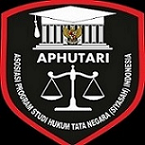Pemberdayaan Masyarakat Dalam Pembangunan Desa
Abstract
The problem in this research is how the implementation of Community Empowerment in Development in Sihoda-hoda Village, Padang Lawas Utara Regency has been implemented. Because the community empowerment that will be carried out has several obstacles so that it cannot be implemented properly. The purpose of this study is to describe and analyze community empowerment in development in Sihoda-hoda Village, Padang Lawas Utara Regency. The author raises the problem formulation, namely How to Empower the Community in Development and what are the supporting and inhibiting factors of community empowerment in development in Sihoda-hoda Village, Padang Lawas Utara Regency. The research method used in this research is a qualitative approach using descriptive methods, namely describing the phenomena or events that occur in the field. Data collection instruments used in this study consisted of interviews, observation, and documentation. The result of this research is that community empowerment in development in Sihoda-hoda Village has not been fully implemented by the Sihoda-hoda Village government. However, when viewed from the level of community participation in the planning stage it is quite high. Where the community participates in the formation of the village medium term development plan through village meetings (MUSDES) held by the village government of Sihoda-hoda. Supporting factors for the implementation of community empowerment in development in Sihoda-hoda Village are the existence of a Village Fund established by the North Padang Lawas Regency government, the willingness of the community to build and manage existing natural resources, and the existence of natural resources that are large enough to be managed by the government and society. While the inhibiting factors for the implementation of community empowerment in development in Sihoda-hoda Village are the lack of training to develop the potential of the Sihoda-hoda Village community, the lack of communication between the village government and the community, and vice versa, and the lack of community awareness of a sense of ownership with what they have.
Keywords
Full Text:
PDFReferences
Sumber Buku
Amiruddin, dan Zainal Asikin. Pengantar Metodologi Penelitian Hukum. Jakarta: Raja Grafindo, 2010.
Muslim, Azis. Metodologi Pembangunan Mayarakat. Yogyakarta: Teras, 2009.
Suyono, Haryono. Pembedaan Masyarakat di Era Global. Bandung: Alfabeta, 2014.
b. Sumber Jurnal
Gunawan, Hendra. Eksistensi Hukum Islam di Indonesia dalam pembangunan Nasional. Yurispundentia: Jurnal Hukum Ekonomi 4, no. 1(2018): 108.
Harahap, Ikhwanuddin. Memahami Urgensi Perbedaan Mazhab dalam KonstruksiHukum Islam di Era Millenial. Jurnal Al-Maqasid : Jurnal Ilmu Kesyariahan dan Keperdataan 5, no. 1(2019): 10.
Kurniawan, Puji. Masyarakat Dan Negara Menurut Al-Farabi.Jurnal El-Qanuniy : Jurnal Ilmu-Ilmu Kesyariahan Dan Pranata Sosial 4, no. 1(2018): 101.
Siregar, Fatahuddin Aziz. Ciri Hukum adat dan Karakteristiknya.Jurnal Al-Maqasid: Jurnal Ilmu Kesyariahan Dan Keperdataan 4, no. 2(2018): 6.
Siregar, Sawaluddin. Perpektif Hukum Islam Mengenai Mekanisme Manipulasi Pasar dalam Transaksi Saham di Pasar Modal. Yurispundentia: Jurnal Hukum Ekonomi 3, no. 2(2017): 70.
Siregar, Syapar Alim. Keringanan Dalam Hukum Islam. Jurnal El-Qanuniy : Jurnal Ilmu-Ilmu Kesyariahan Dan Pranata Sosial 5, no. 2(2019): 294.
DOI: https://doi.org/10.24952/el-thawalib.v2i1.3385
Refbacks
- There are currently no refbacks.










Jurnal El-Thawalib is licensed under a Creative Commons Attribution-ShareAlike 4.0 International License. Copyright © 2022 Jurnal El-Thawalib All rights reserved.



